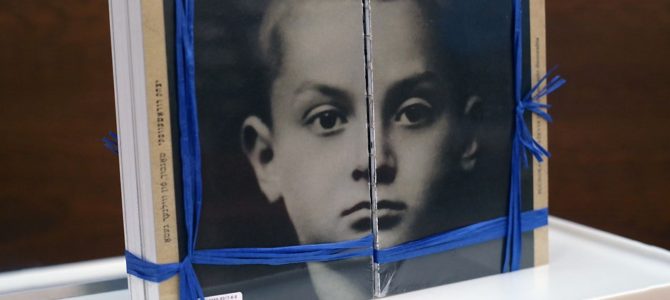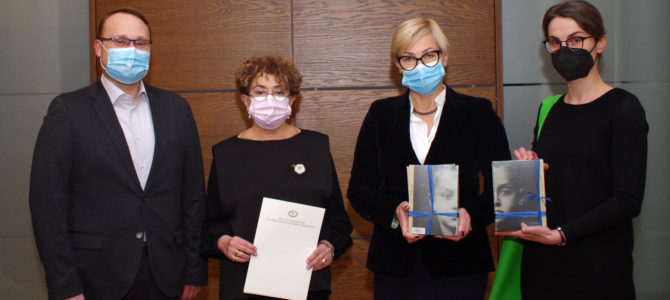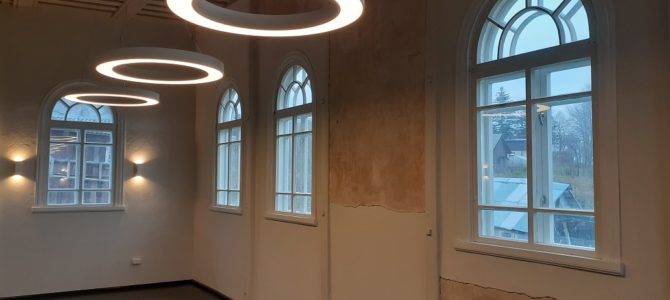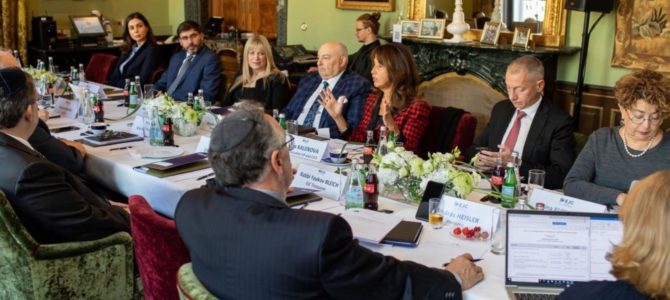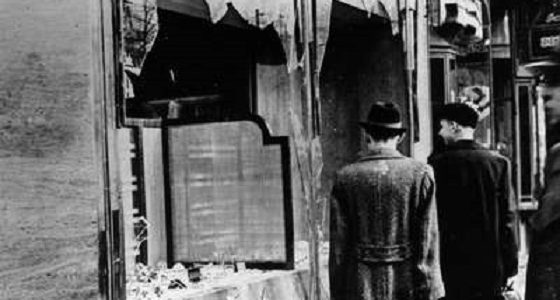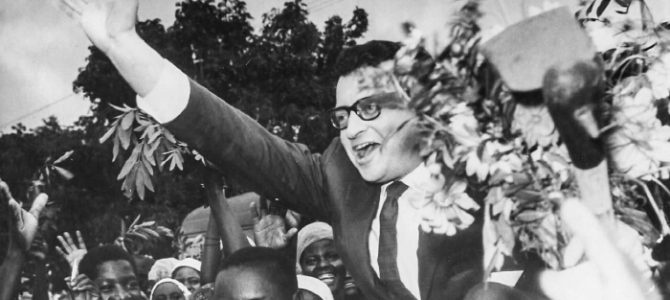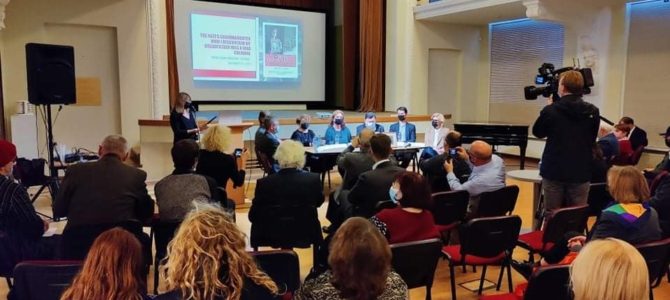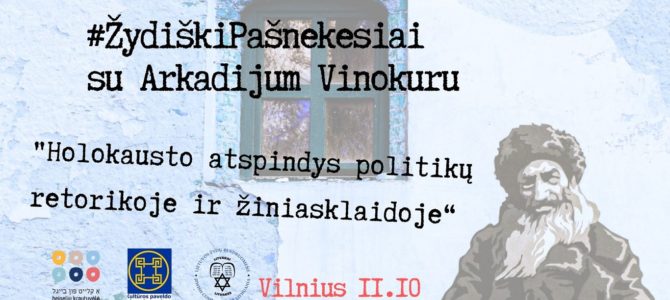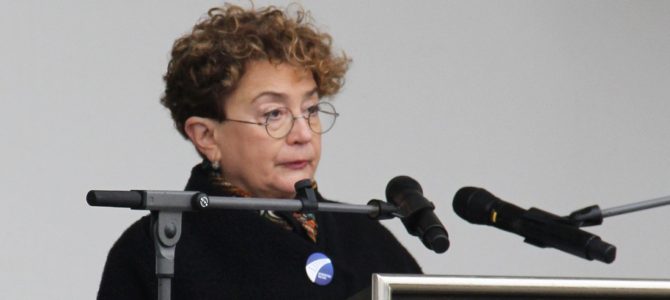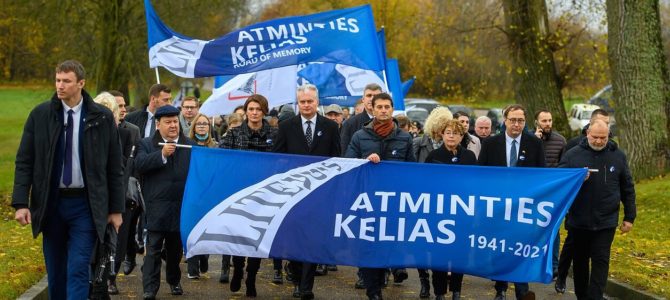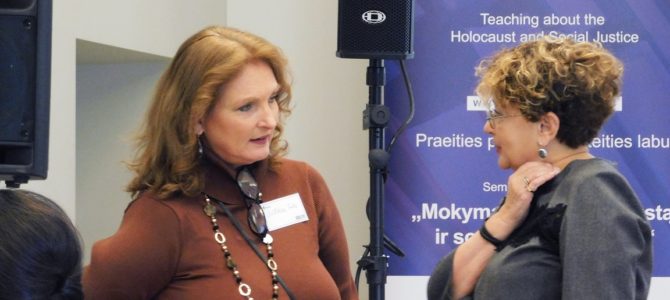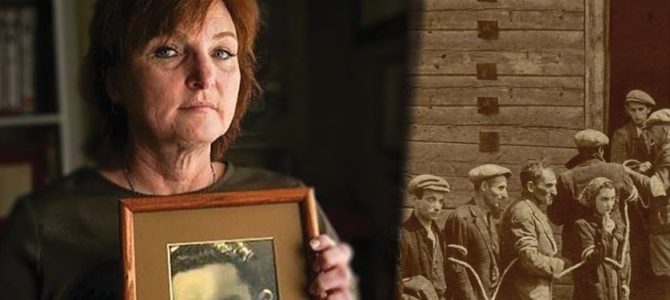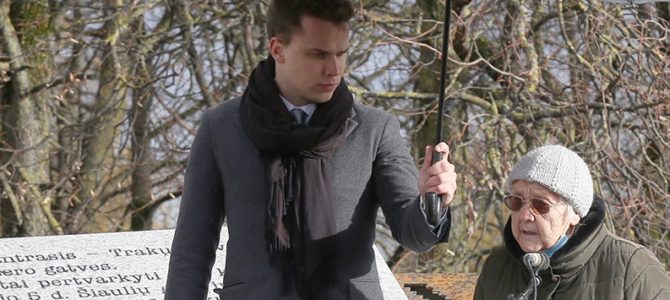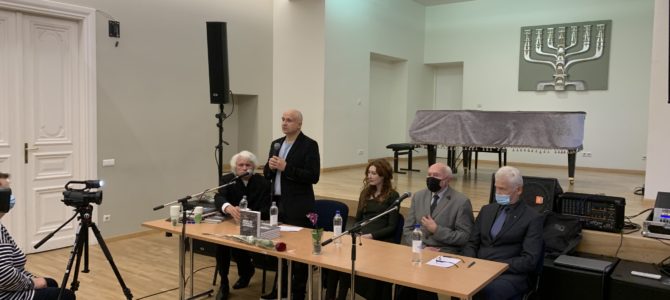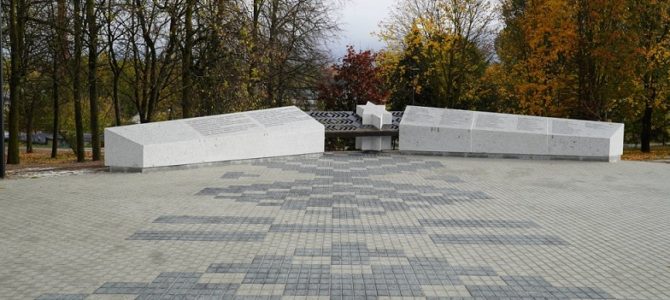The Lithuanian Jewish Community has donated a thousand copies of Yitzhak Rudashevski’s Vilnius Ghetto Diary. [Several days ago] the Lithuanian Ministry of Education and Athletics hosted a ceremony for the symbolic hand-over with education and athletics minister Jurgita Šiugždinienė, Lithuanian Jewish Community chairwoman Faina Kukliansky, former culture minister Kindaugas Kvietkauskas, who translated the book from Yiddish to Lithuanian, and book designer Sigutė Chlebinskaitė participating.
It’s symbolic this is happening in the run-up to Rudashevski’s birthday on December 10, which will be a good opportunity for teachers and students to talk about him and his diary. The book has been included in the Lithuanian language and literature curriculum and Rudashevski is also mentioned in the history curriculum now undergoing revision.
“The simplest matter in embarking upon the path of Holocaust education is literature. It often facilitates better understanding of some of the matters involved than history textbooks can. Anne Frank’s diary is read around the world and is popular, and here in Lithuania we have a similar diary written by an adolescent. My assignment is to donate this book to schools, and it is the job of the education system to say, and there a million Yitzhak Rudashevskis,” Faina Kukliansky said.


